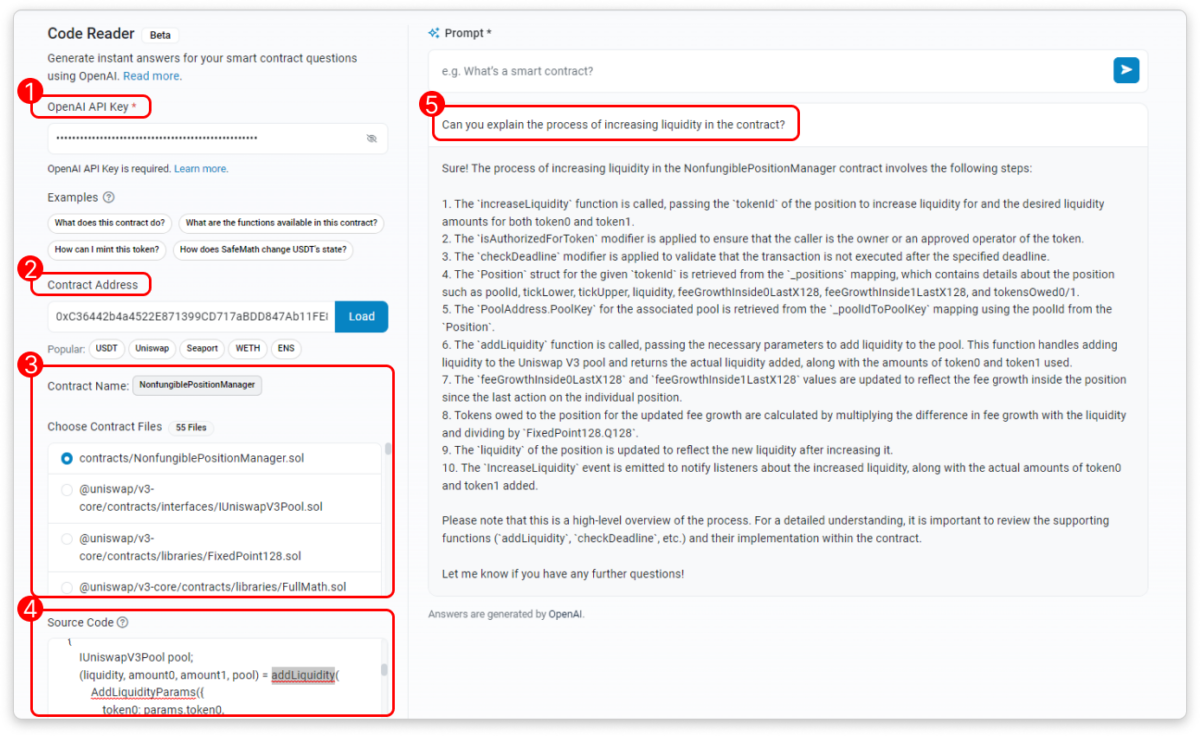Companies in the Web3 space are increasingly trying to integrate artificial intelligence with blockchain-related technologies. On June 19, Etherscan, the popular Ethereum block explorer, took a major step in that direction when it announced the integration of OpenAI’s ChatGPT into its suite of tools. The move is aimed at improving the understanding and interpretation of the Ethereum source code, something many see as a critical step in the democratization of blockchain technology.
Etherscan’s new tool, currently in beta, is called Code Reader and is designed to leverage the capabilities of AI to help users retrieve and interpret the source code of specific contract addresses. Etherscan’s integration of ChatGPT into its platform could potentially have a significant impact on how users interact with the Ethereum blockchain, allowing non-coders to quickly and easily interpret information about a contract.
Access to blockchain contract information
Blockchain explorers, also referred to as “block explorers,” are essentially data platform search engines specifically targeting blockchain networks. They allow users to view information about transactions and other information about a particular chain. While Etherscan deals with the Ethereum network, other chains’ block explorers include Blockstream for Bitcoin and Solscan for the Solana network.

The Code Reader is a tool that harnesses the power of AI to enable users to retrieve and interpret the source code of a specific contract address. Etherscan team wrote as he announced the tool on his Twitter account.
Etherscan warns about ChatGPT errors
The integration is not without challenges. Etherscan’s Code Reader runs on its own platform and requires a separate OpenAI API key, which incurs an additional cost in addition to a ChatGPT Plus subscription.
More importantly, Etherscan has issued a disclaimer warning users not to take the information provided by ChatGPT for granted. This stems from a broader problem common in the AI industry known as “hallucinations” where an AI system convincingly generates false or misleading information.
Code Reader (beta)
Harness the power of AI to seamlessly learn about any smart contract source code!
pic.twitter.com/GTbULisudk
— Etherscan (@etherscan) June 19, 2023
OpenAI has acknowledged the problem with hallucinations and is reportedly working on new training models to reduce them. For now, the problem remains and users are advised to always verify the responses generated by AI systems.
Etherscan’s ChatGPT integration is much closer to the rule than the exception in the Web3 landscape; other blockchain platform developers, such as Alchemy and Solana Labs, have also launched their own ChatGPT-based tools in recent months. These developments highlight the growing intersection of AI and blockchain technology, a convergence that promises to unlock new possibilities but also pose significant challenges.

